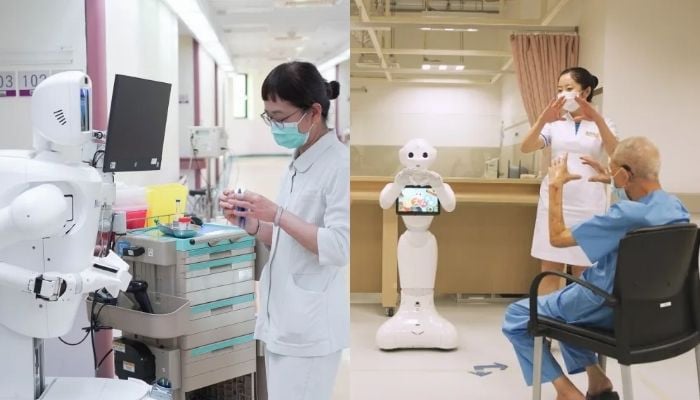Taiwan based tech company, Foxconn has developed an artificial intelligence powered nursing robot, Nurabot, which is designed to sort out critical staffing shortages issues in healthcare systems worldwide.
The Chinese language model enables communication with patients and staff while adapting behavior based on specific situations and contexts.
Autonomous assistants can handle repetitive tasks like medication delivery and patient guidance, currently reducing nursing workload by 20-30% in trials at Taiwan’s Taichung Veterans General Hospital.
The humanoid robot, developed in just 10 months through collaboration with Kawasaki Heavy Industries and NVIDIA, uses advanced sensors and AI navigation to move independently through hospital wards.
World Health Organization (WHO) data revealed: “Healthcare faces a projected global shortage of 4.5 million nurses by 2030, compounded by aging populations and high burnout rates among existing staff.”
Foxconn design director Alice Lin expressed that the hospital bounded automated machine plans to free nurses for complex decision making tasks rather than replacing human workers entirely.
In addition to that, the system undergoes rigorous safety testing before planned commercial launch in early 2026, with Foxconn currently declining to disclose anticipated pricing.
Major development represents growing investment in smart hospital technology, a sector projected to reach $72 billion this year.
Texas-developed Moxi robots, a similar version to Nurabot, already operate in U.S. hospitals, though experts believe continued need for evidence regarding actual workload reduction versus perceived benefits.

_updates.jpg)